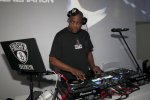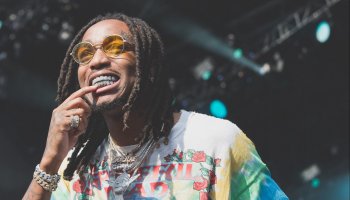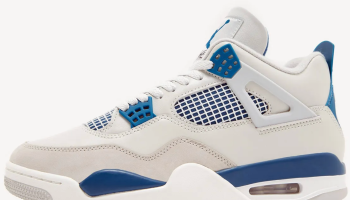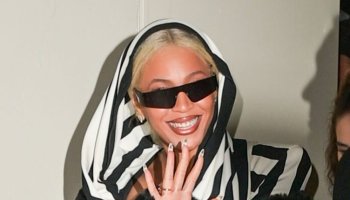Would Dr. Martin Luther King Approve Of Hip-Hop’s Current State?
Martin Luther King, Jr. still remains an iconic and towering figure of the African-American Civil Rights movement, his distinctive timbre still ringing in the minds of anyone who has ever heard one of his many recorded speeches. King’s assassination in April of 1968 took place at a pivotal time, just a scant five or so years before the early seeds of Hip-Hop were being planted by a teenaged Jamaican immigrant named Clive Campbell, who went on to become the legendary DJ Kool Herc.
King’s untimely death shook up a nation still adjusting to oppression and combating the looming specter of racism, sparking race-fueled riots that gave way for vocal (and sometimes violent) Black leaders who saw King’s non-violent path to be soft and far too forgiving. James Brown, Marvin Gaye and others would use the tension of the times to fuel their art and message. However would King have approved of music’s powerful influence, especially that of Hip-Hop, in its current state if he were with us today?
As a clergyman, it could be assumed that King didn’t listen to much secular music but he was patently aware of the world and its diversity. Unification and togetherness formed his message and, during brief times since Hip-Hop’s late 70s funk-influenced works; the music has certainly reflected many of the tenets King stood for. However, the social militancy of the 70s gave way to the freewheeling and partying 80s, all influencing Hip-Hop to constantly morph small intervals at a time. Only during the late 80s and early 90s—considered by many to be Hip-Hop’s “Golden Era”—did the music have a chance to be the message-driven music it always strived to be.
King would certainly frown upon the consumerism and blatant talk of opulence that began in the mid to late 90s, peaking around the early 2000s. It is that time period some say that Hip-Hop is still trying to heal itself from. On one side, the “bling rap” era consisted of the exaggerated tales of drugs, guns and violence— all things King would surely denounce without a doubt. Fans ate up these fanciful tales greedily and record labels, seeking to cash in on the gullible nature of Rap fans, pushed to produce more of the same fare. Labels were no longer seeking out innovators, they sought out the next big thing no matter how fleeting the interest would eventually become.
Today, fans are making millionaires out of modern-day minstrel acts. A catchy tune and repetitive hook with uninventive lyrics in tow, the flashes of brilliance and abundance of talent found in decades past have been replaced with repetitive idiocy. Imagine King hearing Plies, a former college athlete, juxtapose between his exaggerated goon image and the well-spoken man behind the mask. King wouldn’t be too proud of DMX’s repeated run-ins with the law, all while promoting their shared spiritual faith. Perhaps King would be proud of Nicki Minaj’s success, but it would be difficult to accept that he would approve of her overs*xed image.
King’s “I Have A Dream” speech is still a resonant and relevant piece of work, the core of the message coming true in some ways. Hip-Hop has been a great unifier, and fans of all races and cultures have supported acts together under the same roof. One of Hip-Hop’s brightest stars, Eminem, has fans of all races who claim him as one of the elite acts of the genre. Wiz Khalifa’s party tunes have made him a darling from the inner cities to the suburbs. The enigmatic Lil B constantly preaches a King-like message of peace and positivity, but it’s doubtful Dr. King would enjoy the low-brow (if light-hearted) nature of a “Wonton Soup.”
Misogyny, violence, drugs and other morbid subjects dominate a lot of today’s popular Hip-Hop. Yet there are acts in existence that such as Malcolm & Martin, borrowing Dr. King’s first name and the first name fellow civil rights leader Malcolm X. The music of the California-based duo celebrates black achievement and in interviews, the rappers, KB Imean and Styliztik Jones, have been critical of rap’s bigger artists for promoting false images. Their protests have been drowned out by more popular acts hardly concerned with quality or providing hopeful messages in their tunes. Simply put, fans don’t demand quality as they used to. They’ve come to expect what’s given to them.
Dr. King’s dream didn’t include Hip-Hop as the music was not yet born in 1963 during the famous speech. A portion of the speech that is often missed is especially important: “We must forever conduct our struggle on the high plane of dignity and discipline.”
If only Hip-Hop and its many fans would take heed to such a call.















